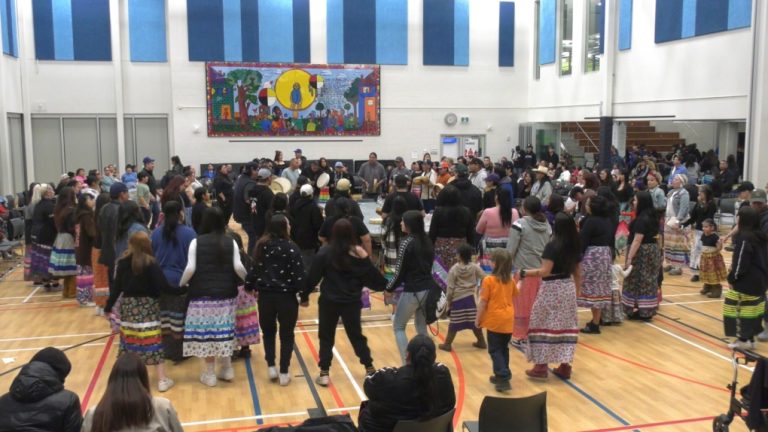The Street Culture Now Project has been meeting unmet youth needs in the community for a quarter of a century.
On Friday, to celebrate the huge event, the organization held its first-ever round dance in north-central Regina.
The event, which focused on the program's youth past and present, attracted hundreds of people and filled the Mamawiattan Center to capacity.
“It's great to have a lot of young people from the programs here. A lot of them said they've never been to a round dance, and this is their first time and they want to go to more,” said Caelita Favell, program director for the Street Culture Project.
The first twenty-five years of the organization's life were the focus, as were the next twenty-five years of operation. Holding their first-ever round dance coincides with their efforts to work for truth and reconciliation.
“We are trying to reconnect our youth with their culture. In this way, young people have this sense of identity and pride in their culture, and they are trying to eliminate the high-risk behaviors that our youth have by reintegrating their culture back into them,” said Annie Ewenen, Director of Truth and Reconciliation at the Street Culture Project. ..
Street culture came from humble beginnings.
The first decade of the program revolved around community outreach and development. It was a place that provided mentorship and an outlet for young people to become active in the community.
Face painting was a source of income which later became one of their early trademarks.
The organization also had several social institutions, such as a cafeteria located at the now-closed downtown YMCA location.
The Street Culture Project then evolved, opening the door to young people dealing with homelessness, as well as addressing the real issues young people faced at the time.
Over the years, it is estimated that the Street Culture Project has served more than 3,000 youth.
“The organization’s roots are really in entrepreneurship and finding ways to meet unmet youth needs in the community. This organization has sustained itself over time,” said Jeff Dudar, CEO of the Street Culture Project.
Currently, the organization is in a transitional phase. Their home site is currently under renovation.
Moving forward, the organization plans to continue to address the issue of youth and homelessness, as well as work on prevention in the areas of mental health, addiction, and recreational opportunities.
“Street culture has been here for 25 years. We will be here for another 25 days,” Dodar said.

